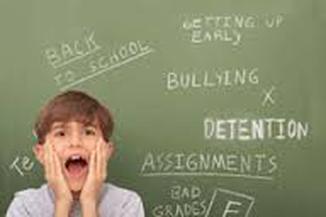
Any one of these events could be overwhelming, confusing, and/or frustrating for an adolescent. Without proper help to understand and cope with changes, individuals begin to develop maladaptive coping strategies. Some ways teenagers adapt poorly include aggression, disrespectful, depressed, self-mutilation, anxiety, eating disorders, sexual experimentation, or drugs and alcohol usage.
School Anxiety and avoidance is on the rise. Teenager believe they cannot “handle” being at school. They complain the “pressure” to get good grades and act a certain way is too much. Parents worry: Is my child being bullied? Is the expectation to do homework and attend school every day too much? What happens for 8 hours while they are at school?
It is scary for parents, and adolescents, to go to school unprepared. Luckily, I have several suggestions: DOs and DON’Ts for parents when helping their adolescent. Using these tried and true techniques will help you and your teenager to adapt appropriately to both middle school and changes in general.
DO Require your child to Attend school every day Think of Positive aspects of school (or the issue you are dreading) and list them: Review daily Ask Questions: What is causing the anxiety? Listen Show Empathy Encourage child to address anxiety head-on Develop techniques to manage anxiety before, during, and after school Contact school counselor and teachers Make a safe-school plan with student and appropriate adults Report any issues with bullying or harassment Encourage your child to join clubs/sports teams: adds to desire to be at school and promotes healthy peer relationships based on common interests Volunteer at the school to get to know the adults and peers Remember your child’s safety is your #1 concern – If he/she is safe, school is #2 priority regardless of anxiety. Consult a therapist for help | DON'T Give into fear Allow your child to Avoid the new event (school, job, social event) – it will be even harder to go the next time! Add to student anxiety by overreacting Ignore the concerns Blame the student, school, peers, or teachers Give up trying to make the situation better Handle the situation by yourself: Ask for help! |
Bree Winkler is a Licensed Professional Counselor and Certified Anger Management Specialist in Atlanta, GA. Contact Bree today to schedule an initial counseling session.


 RSS Feed
RSS Feed